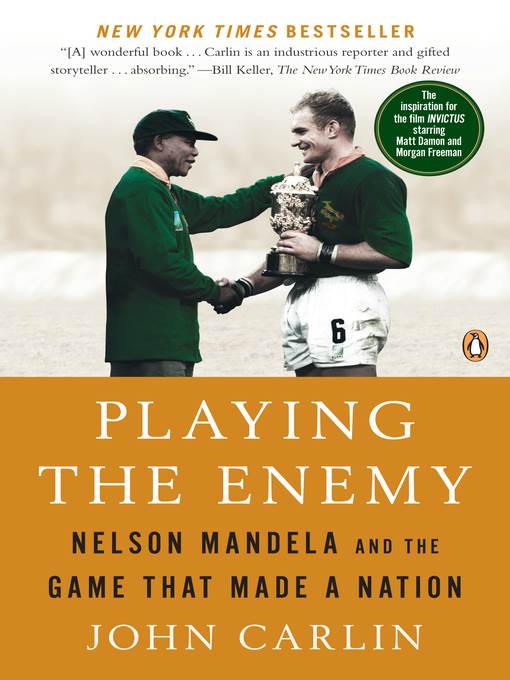
Playing the Enemy
Nelson Mandela and the Game That Made a Nation
کتاب های مرتبط
- اطلاعات
- نقد و بررسی
- دیدگاه کاربران
نقد و بررسی

June 2, 2008
Carlin offers the final dramatic chapters of how then president Nelson Mandela and his wily strategy of using a sporting event—the Sprinkboks rugby team in the 1995 World Cup—to mend South Africa. Carlin, a senior international writer for El País
, quotes Mandela: “Sports has the power to change the world.... It is more powerful than government in breaking down racial barriers.” After giving an informed capsule history of apartheid’s bitter legacy and Mandela’s noble stature as a leader, the scene is set for the influential rugby match between the solid New Zealand team and the scrappy South African squad in the finals of the World Cup, with 43 million blacks and whites awaiting the outcome. All of the cast in Afrikaner lore are here—Botha, DeKlerk, Bernard, Viljeon—as they match wits with Mandela. Carlin concludes this excellent book of redemption and forgiveness with chapters that depict how a divided country can be elevated beyond hate and malice to pride and healing.

June 1, 2008
Carlin (senior international writer, "El Pais; White Angels: Beckham, the Real Madrid and the New Football") provides an intriguing and readable addition to the small shelf of books (e.g., David Black and John Nauright's "Rugby and the South African Nation") on the role of rugby in unifying post-apartheid South Africa and on how sports and politics can be meaningfully intertwined. Although Carlin focuses on Nelson Mandela's use of the 1995 World Cup rugby championship, which had been uniquely scheduled to take place entirely in South African stadiums, he provides many engrossing anecdotes that illuminate the troubled political atmosphere in South Africa at the time. Carlin depicts Mandela's evolving attitude toward rugby, from his contempt for a sport that represented white South African domination (specifically as represented by the national team, the Springboks), to his consideration of the sport as a tool for unity, to his becoming an actual rugby fan. Nestled within Carlin's stories are valuable insights into the political genius of Mandela both generally and specifically in his role in converging sport, culture, and politics. Carlin's own recent interviews, with Mandela, the rugby players, and various politicians, serve as strong primary-source material. Endnotes and a bibliography would have made the book more suitable for an academic audience. Recommended for high school and public libraries. [See Prepub Alert, "LJ" 5/15/08.]Shannon Pritting, SUNY at Oswego Lib.
Copyright 2008 Library Journal, LLC Used with permission.

























دیدگاه کاربران